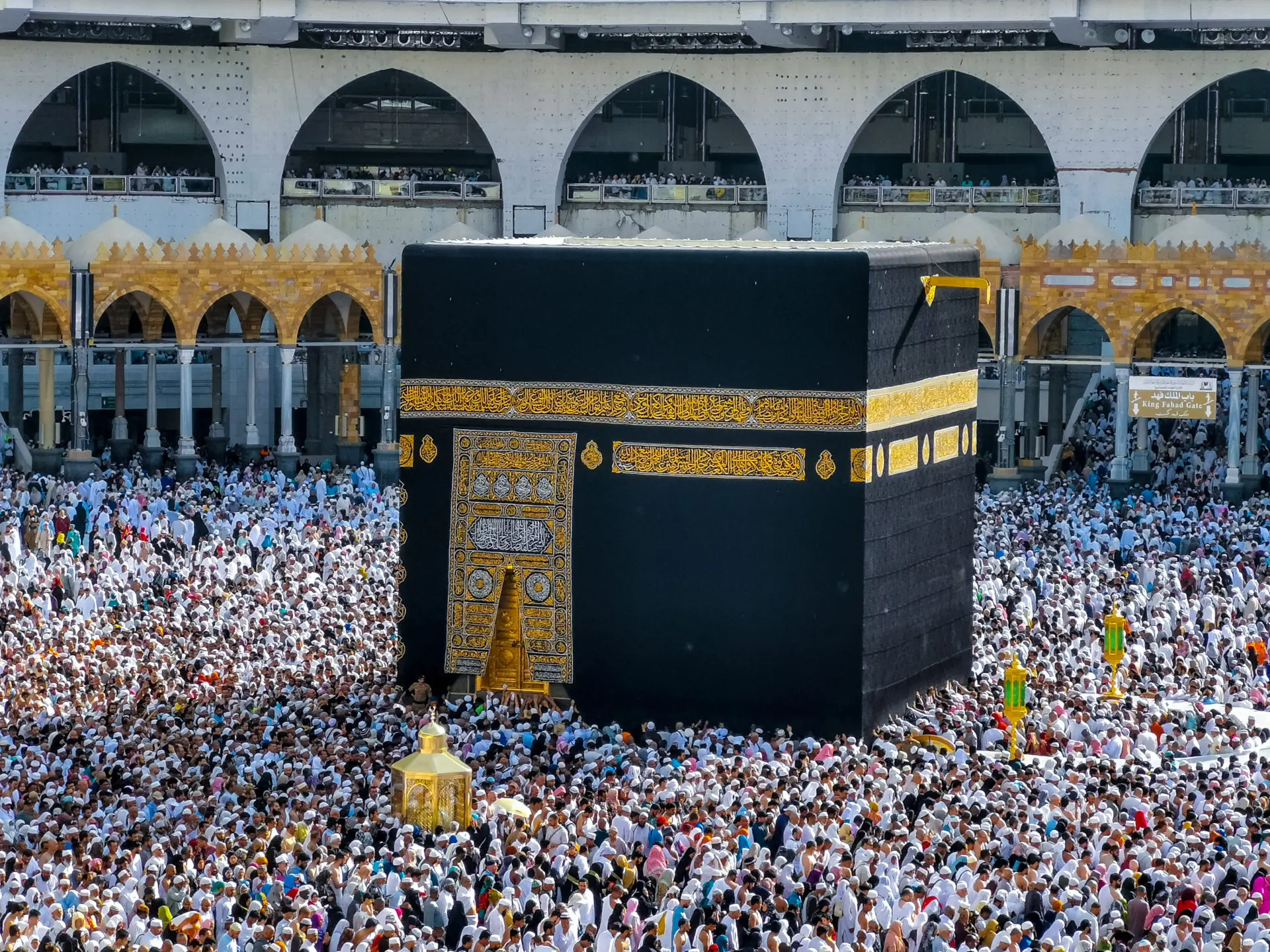Tulsa native and Muslim convert Allison Moore left Wednesday for Mecca, Saudi Arabia, where she and 2 million-plus other Muslims from around the globe will participate in the annual Hajj pilgrimage.
About 15 Tulsa Muslims and another 30 from around the state will make the pilgrimage, required once in a lifetime of all Muslims who are physically and financially able to go.
Moore said the three-week trip will cost about $10,000.
Moore will be joined by her husband next week. For much of the trip, she will stay in five-star hotels, but the final week, the actual Hajj, they will stay in a huge tent city and one night will sleep outside in sleeping bags. Daytime temperatures will be well above 100 degrees.
“It’s not a vacation – it’s a pilgrimage,” Moore said Tuesday as she packed her bags.
“The idea is sacrifice. We’re going truly to worship God.
“I know it’s going to be hard,” she said. “But I’m very excited.”
She said Islam teaches that God grants forgiveness of sins to Muslims who make the Hajj sacrifice with the right intentions.
Moore said she was exposed to Islam through her first husband, a Muslim, while she was living in Houston.
“After reading the Quran, I felt like it was God’s word. It was a slap in the face. I didn’t (earlier) see it as the truth,” said Moore, who was raised Episcopalian.
In part, she said, she was convinced of the truth of Islam by her exposure to the Bible, in which worshippers prayed by prostrating themselves, Jesus did not eat pork, women covered their heads and people practiced ceremonial washings.
But the biggest issue, she said, was the Christian concept of a trinitarian God.
“The word trinity does not appear in the Bible. If it’s so important, why is it not in the Bible?” she said.
So 22 years ago she became a Muslim by declaring the Muslim statement of faith: that there is no God but Allah and that Muhammad is his prophet.
She said she had no trouble praying five times a day or giving up alcohol and pork.
She divorced, and in 1993 moved back to Tulsa, where she met Sean Moore. He was raised Catholic and converted to Islam after meeting her.
They were married in 1995 and have two children, ages 12 and 13.
For her, the hardest thing about being a Muslim was wearing the hijab, the Muslim head scarf, she said. During her first 17 years as a Muslim, she wore the scarf for prayer but not in public.
Five years ago, she began to wear it whenever she was in public.
“It was a personal sacrifice,” she said. “It was difficult to do, … kind of like becoming a nun wearing a habit.”
Moore said she gets stares in restaurants in small towns, and she dislikes that her head covering makes some people feel ill at ease or fearful in airports.
Four years ago she was diagnosed with multiple sclerosis, but she has minimized the symptoms by watching her diet and avoiding stress. She stopped watching the news, which she believes increases anxiety.
“There’s a freedom in walking away from that,” she said.
During the Hajj, she and other pilgrims will offer prayers all day at a mountain near Mecca where Muslims believe Adam and Eve first met after being expelled from the Garden of Eden; spend a night in prayer outside on a plain; and circle the Kaaba seven times – an ancient, large, black, cube-shaped structure in the Grand Mosque in Mecca.
Muslims believe the Kaaba was built by Abraham and his son Ishmael more than 4,000 years ago and that the black stone that is its cornerstone was part of the altar where Adam worshipped.
The Hajj pilgrimage to Mecca is one of five pillars, or requirements of Islam. The others are to proclaim that there is no God but Allah and that Muhammad is his prophet; to fast during the lunar month of Ramadan; to pray five times a day facing Mecca; and to practice charity.
Non-Muslims may not enter Mecca.

